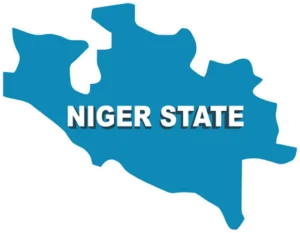
Investigating long-term effects of removal of petrol subsidies on the Nigerian economy
The abolition of petrol subsidies by President Bola Tinubu remains a source of confusion, even after nine months since the decision was made. Despite assurances from the Federal Government and the Nigerian National Petroleum Company Limited that subsidies have been removed, recent reports indicate otherwise.
The increase in petrol prices from N187 per litre during the subsidy era to approximately N500/l and now between N580/l and N700/l has raised concerns that need to be addressed.
The trouble began in June when the multiple naira rates were unified, leading to a consistent depreciation of the naira against the dollar. The exchange rate has moved from N460.70 per $1 to N1,500/$1 this month.
This has posed a challenge for Nigeria, which heavily relies on imported petroleum products and has set a price cap at retail stations. As a result, the assertion that there is no longer any subsidy has become a contentious issue. Experts in the industry estimate that the minimum landing cost of petrol is around N1,200/l, considering the price of a barrel of oil at $76.27.
Media reports have also highlighted the significant price differences in neighbouring countries. For instance, Benin Republic sells petrol at N1,633 per litre, Ghana at N1,500, Togo at N1,680, Cameroon at N2,011, Burkina Faso at N2,042, and Mali at the highest price of N2,080.
Adding to the confusion, the International Monetary Fund (IMF) has accused the Nigerian government of secretly reintroducing petrol subsidies. During its recent Post Financing Assessment with Nigeria, the IMF stated that the Tinubu administration has “capped retail fuel and electricity prices — thus partially reversing the fuel (petrol) subsidy removal.”
These discrepancies and the IMF’s observation raise serious questions about the transparency and effectiveness of the decision to abolish petrol subsidies. It is crucial for the government to address these concerns and provide clarity on the current situation.
The Nigerian people deserve to know the truth and understand the implications of this decision on their daily lives and the economy as a whole.
As usual, there are gains and losses. The positives include more money for the three tiers of government. In November, the centre said it saved N1.45 trillion between June and September because of subsidy removal.
In the realm of Nigeria’s economic landscape, a glimmer of hope emerges amidst the gloom. The 36 states are set to receive a staggering N2.24 trillion, a significant increase from the N3.3 trillion they previously collected from the Federal Accounts Allocation Committee.
However, this positive development is overshadowed by the persistent queues at petrol stations, with diesel prices soaring to N1,200 per litre and aviation fuel becoming a luxury due to the country’s reliance on imports. Inflation has also reached a staggering 28.99 percent in December, marking a two-decade high.
Consequently, the citizens are growing increasingly restless, and protests have erupted in several states. Businesses are grappling with the harsh economic conditions, leading to closures and downsizing, while public workers are clamoring for higher wages. It is evident that a solution must be found to alleviate the hardships faced by the people.
There are two intertwined paths that can pave the way towards a brighter future. First and foremost, the Tinubu government must take a bold stance and put an end to the importation of petroleum products. The continuous reliance on imports hinders any potential decrease in prices.
Therefore, the government must prioritise domestic refining. Given that Nigeria is Africa’s largest crude exporter, this should be a feasible endeavour. Moreover, domestic refining would alleviate the pressure on the national currency, as the Nigerian National Petroleum Corporation (NNPC) would no longer require dollars for product imports.
Encouragingly, the Dangote Refinery in Lagos, with a capacity of 650,000 barrels per day, is on the verge of commencing production. The government should extend its support to ensure the smooth operation.
The highly anticipated Dangote Refinery is on the verge of commencing production, with a capacity of 650,000 barrels per day. To ensure the smooth operation of this significant project, it is imperative for the government to extend its material support.
One crucial aspect of this support is conducting a comprehensive security review to bolster Nigeria’s crude oil production, which experienced a decline to 1.48 million barrels per day in January.
The current loss of 400,000 barrels per day, equivalent to approximately $4 million, as highlighted by the National Security Adviser, Nuhu Ribadu, underscores the urgency of the situation.Furthermore, it is imperative for the government and the Nigerian National Petroleum Corporation (NNPC) to expedite the resumption of refining activities at the four public refineries, starting with the facilities in Port Harcourt.
To ensure sustained production, it would be prudent for these refineries to be privatised at the earliest opportunity. This strategic move would not only revitalise foreign direct investment (FDI) but also contribute to the strengthening of the naira, Nigeria’s currency.
However, bolstering the value of the naira presents a challenge, particularly for politicians.
It is no secret that government officials exert immense pressure on the naira after receiving their monthly FAAC allocations, utilising the currency to acquire dollars.
To address this issue, the government should consider providing these officials with their allocations in dollars, considering that Nigeria primarily sells crude oil in this currency. By creatively addressing these crucial aspects, Nigeria can pave the way for a thriving energy sector, enhanced economic stability, and a stronger national currency.




